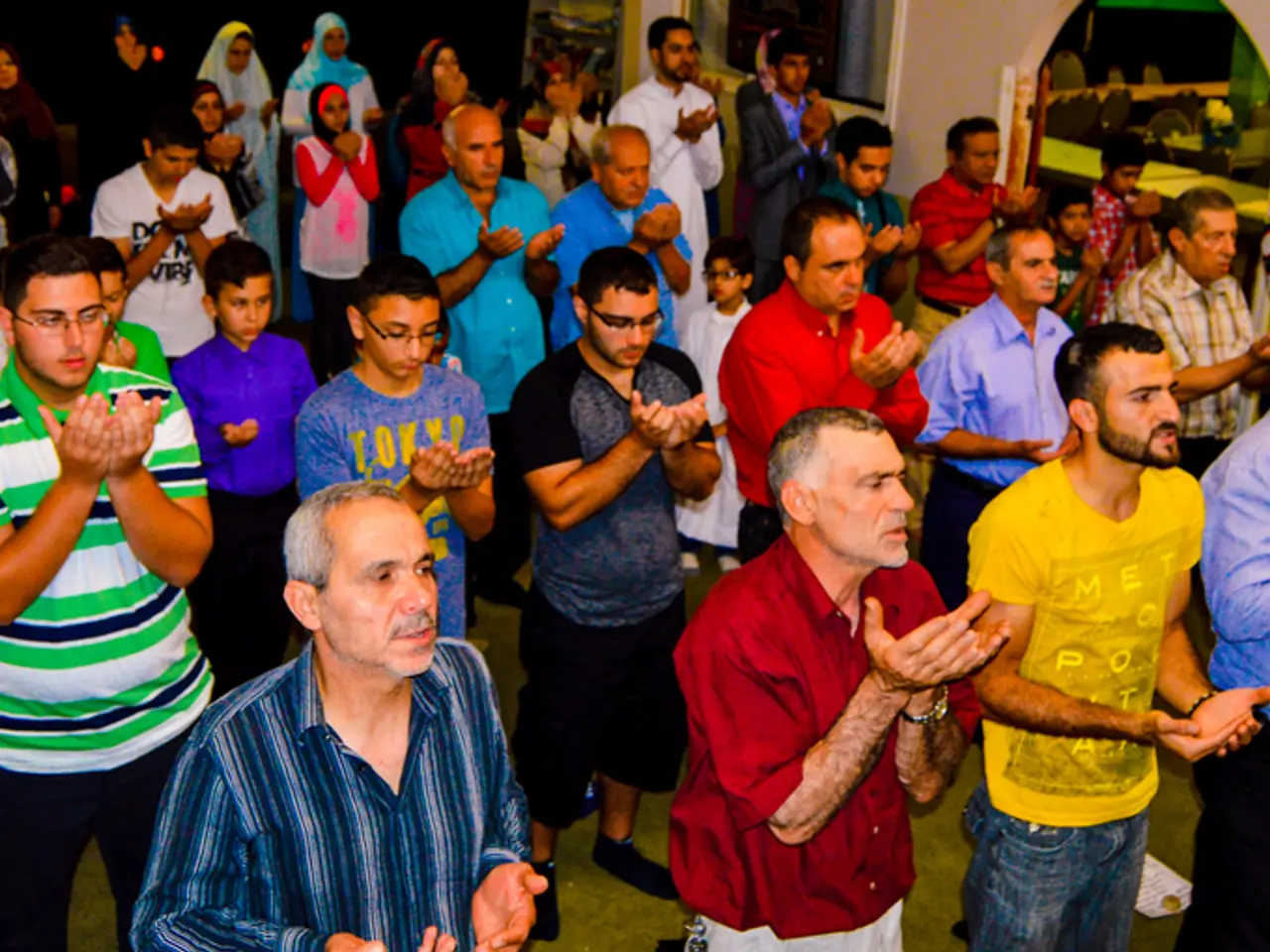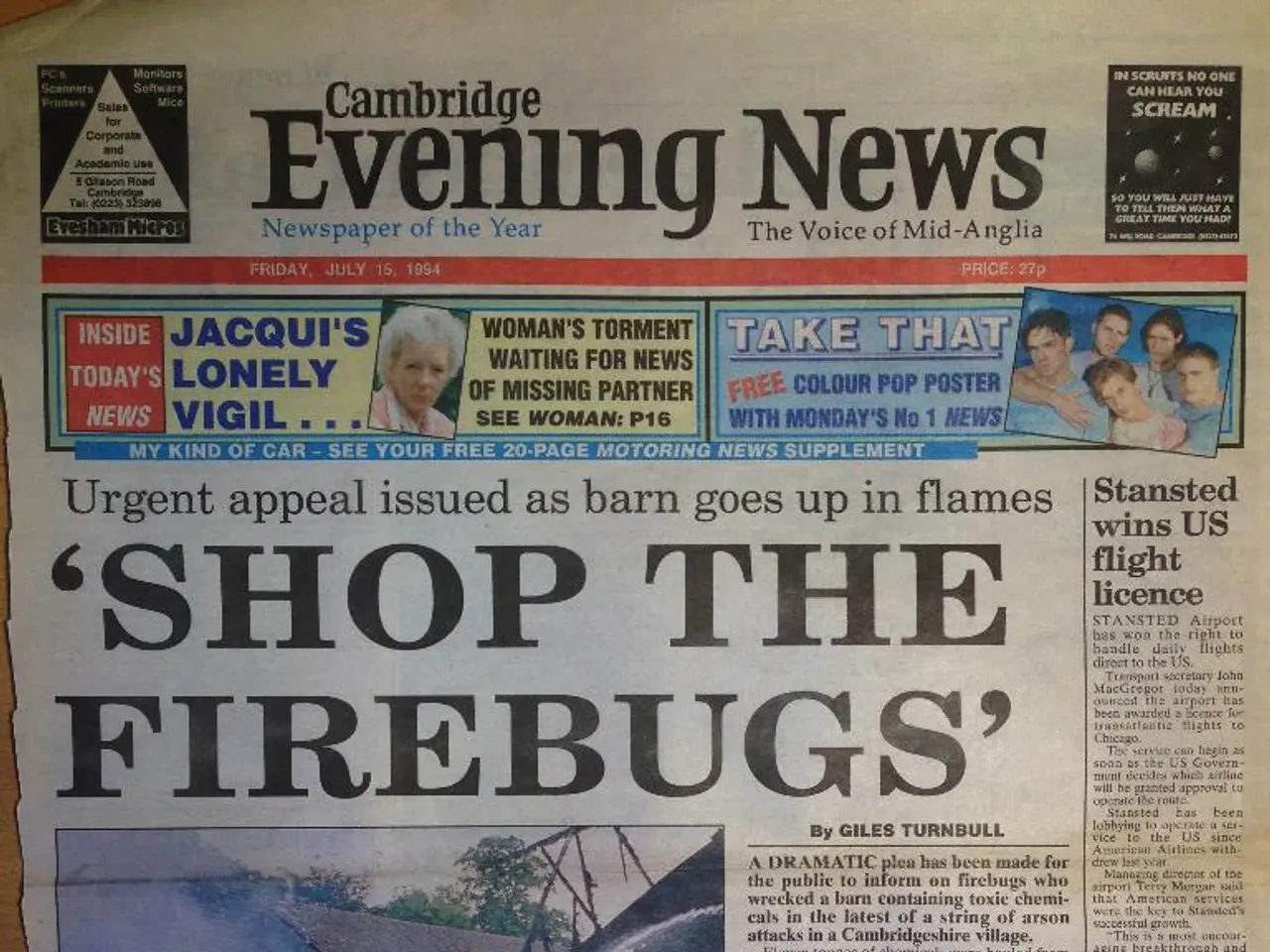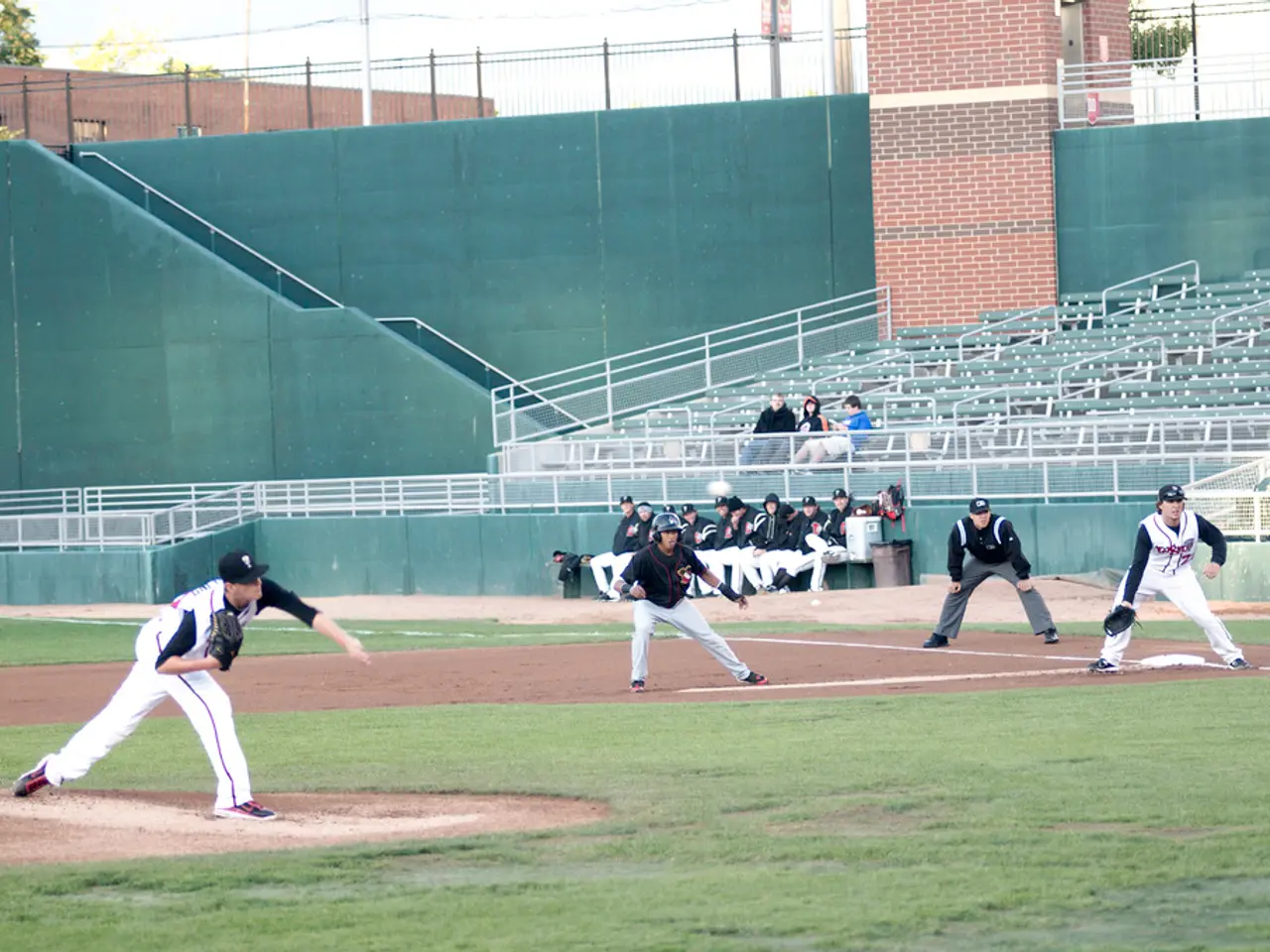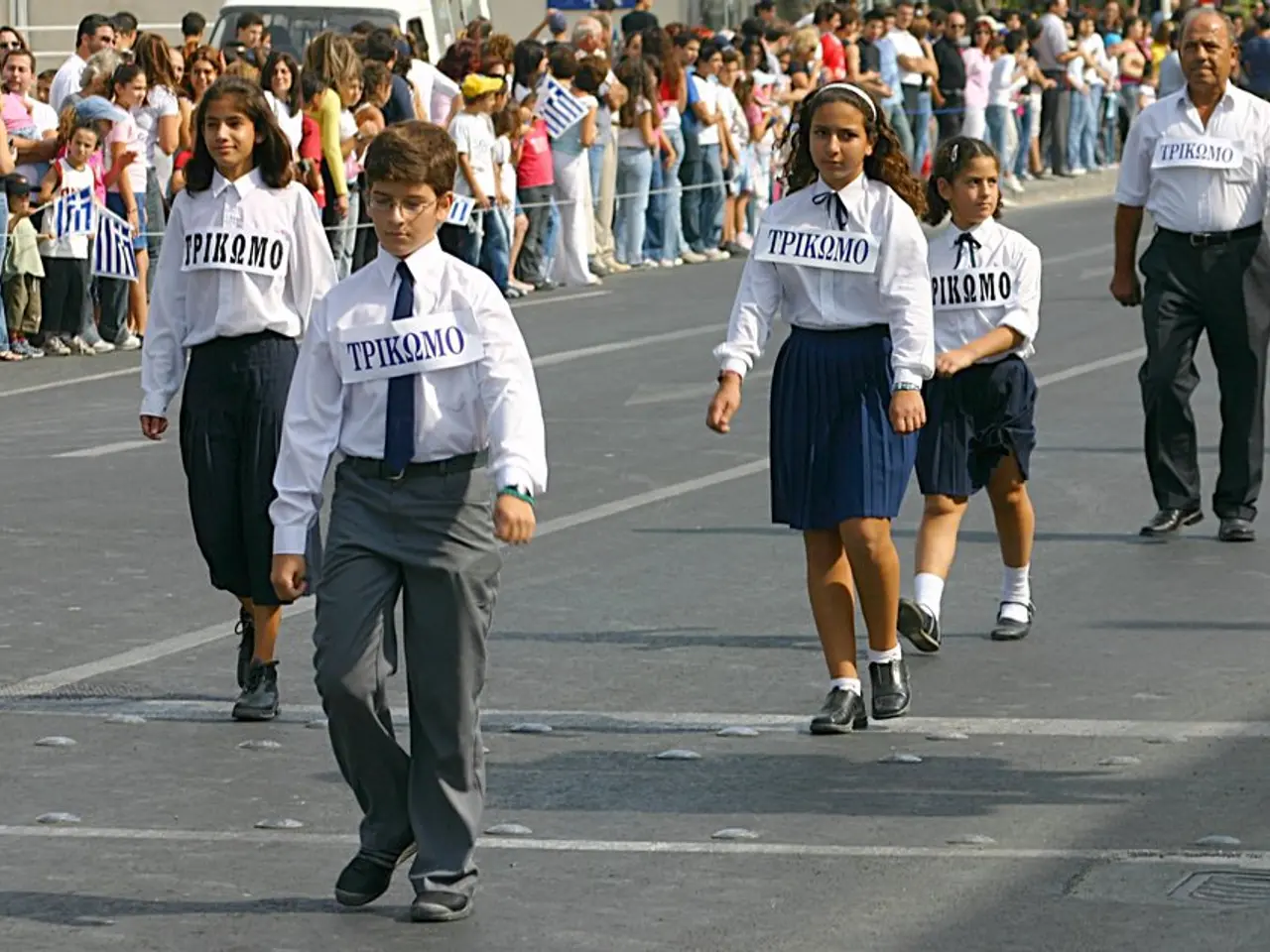Religious leaders in Indonesia call for decisive measures to safeguard religious liberties
In the heart of Southeast Asia, Indonesia, a nation known for its rich cultural diversity, has been experiencing a troubling rise in religious violence, particularly against Christian communities. This escalating trend has prompted a united stand among the country's faith communities, culminating in a powerful appeal for peace and tolerance.
The Catholic Bishops of Indonesia, along with representatives from the Supreme Council for the Confucian Religion, Buddhists, and Protestants, have issued a joint statement, emphasizing the importance of preserving places of worship as "spaces of peace, security, and dignity." This appeal, reported by the Vatican's Fides News Agency, was presented at a press conference held at the Bishops' Conference headquarters.
The statement recalls that freedom of religion and worship is enshrined in Indonesia's 1945 Constitution. It urges religious leaders to encourage their followers not to be provoked by divisive rhetoric, but to live their faith in peace, harmony, and tolerance. The signatories also emphasize that any act of intimidation, violence, or unilateral restriction of religious activities violates the law and undermines the fundamental values of life together as citizens of the same nation.
The statement was issued in response to several recent attacks against places of worship and institutions linked to Christian communities. Notable incidents include the forcible disruption of worship at a prayer house on July 28, a Muslim mob attack on a Christian youth retreat on August 5, and a failed suicide bombing and axe attack in western Indonesia during Sunday Mass on August 8. While the perpetrators of these incidents are not fully confirmed, Islamist extremist groups such as Jemaah Islamiyah (JI) and violent groups like Laskar Jihad have historically been linked to religious violence and terrorism in Indonesia.
The State's duty, as outlined in the statement, is to intervene firmly through law enforcement and local authorities to prevent and thoroughly investigate every act of violence, refusal, obstruction, or destruction of places used for prayer. The statement affirms the duty of the State to ensure episodes of intolerance and violence are not repeated.
Safeguarding religious freedom requires the commitment of all: government institutions, the Forum for Religious Harmony (FKUB), and society at large. Each episode of aggression, prohibition, or disruption of prayer is a serious blow to the construction of tolerance and peaceful coexistence. The signatories insist that places of worship must always remain "spaces of peace, security, and dignity."
The current investigation status of these incidents is not fully detailed in the public domain. However, law enforcement likely continues to investigate the failed bombing and mob attacks, focusing on Islamist extremist connections given Indonesia's history with such groups. Government officials are reportedly debating regulations on non-church religious buildings amid rising violence, indicating governmental engagement with the security implications.
This appeal reflects a united stand among Indonesia's faith communities, emphasizing the importance of peace, harmony, and tolerance in the face of religious violence. It serves as a call to action for the government, religious leaders, and society at large to work together to protect the fundamental right to freedom of religion and worship for all citizens of Indonesia.
- The joint statement, issued by the Catholic Bishops, Supreme Council for the Confucian Religion, Buddhists, and Protestants, applies not only to the preservation of Christian places of worship but also extends to all spaces of worship, emphasizing them as "spaces of peace, security, and dignity" across various religious groups in Indonesia's context of general-news and crime-and-justice.
- In the realm of politics, the signatories urge the Indonesian government to adhere stringently to the law, ensuring swift investigation and prevention of any act of violence against religious institutions and upholding the country's constitution that guarantees freedom of religion and worship, thereby fostering peace, harmony, and tolerance in line with the united stand among Indonesia's faith communities.








